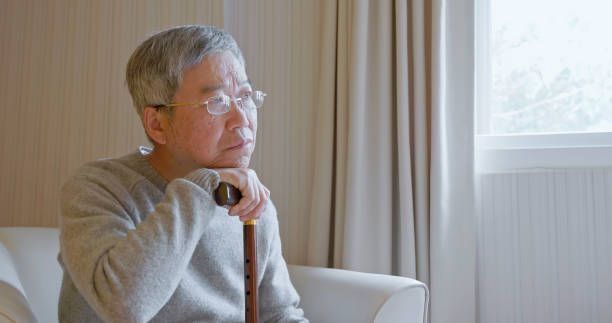Is It Illegal to Leave a Dementia Patient Alone?
At 7 Day Home Care, one of the most serious concerns families bring to us is this: Is it illegal to leave a dementia patient alone? Beyond the immediate danger to the individual — including wandering, falls, and medical crises — leaving a person with dementia unsupervised can also pose significant risks to others in the community. Accidental fires, traffic incidents, and public safety emergencies are real possibilities when cognitive impairment goes unmanaged. Across New York City, Long Island, and surrounding areas, elder neglect laws hold caregivers legally responsible for protecting vulnerable adults. But beyond the legal risks, there is a deeper ethical obligation: ensuring the dignity, safety, and well-being of both our loved ones and the communities we live in. In this article, 7 Day Home Care explores the legal, ethical, and safety implications — and how we can help you protect what matters most.
7 Day Home Care is New York's leading private pay home care agency, providing 24/7 home care services in Manhattan, Queens, Brooklyn, and Long Island, New York. To learn more about our award winning and specialized Alzheimer's and dementia in-home care services near you, please call 516-408-0034.

If You are Asking this Question: Is It Illegal to Leave a Dementia Patient Alone? You Recognizing the Risks
Understanding the Legal Risks of Unsupervised Dementia Care
Is it illegal to leave a dementia patient alone? This critical question concerns thousands of families providing care for loved ones with dementia. The legal, safety, and ethical implications are significant and potentially life-changing. At 7 Day Home Care, we've compiled this comprehensive guide to help you understand the risks and best practices for dementia care supervision.
Disclaimer: This article provides general information only and not legal advice. Please consult an attorney licensed in your state for specific legal guidance regarding your situation.
Is It Illegal to Leave a Dementia Patient Alone? The Legal Framework
The Legal Answer: Yes, It Can Be Illegal
Is it illegal to leave a dementia patient alone? In many circumstances, yes. While no single federal statute explicitly prohibits leaving someone with dementia unsupervised, most state elder protection laws classify inadequate supervision of vulnerable adults as neglect.
Leaving a person with dementia alone—particularly when they cannot safely care for themselves—may result in:
- Civil penalties under elder neglect statutes
- Criminal charges for endangerment or abandonment
- Intervention by Adult Protective Services
- Court-mandated guardianship arrangements
Why Leaving Someone with Dementia Alone Constitutes Legal Neglect
Dementia progressively impairs:
- Memory and recognition
- Judgment and decision-making
- Spatial orientation and navigation
- Risk assessment capabilities
- Emotional regulation
When caregivers knowingly leave someone with these impairments unsupervised, legal authorities often view this as neglect—even if no harm has yet occurred.
Understanding Legal Definitions of Elder Neglect
Each state defines elder neglect somewhat differently, but most include failure to provide:
- Adequate supervision and protection
- Necessary medical attention or medications
- Proper nutrition and hydration
- Safe living conditions
Legal Consequences of Unsupervised Dementia Care
Leaving a person with dementia unsupervised can trigger several legal consequences. Adult Protective Services (APS) may launch an investigation to assess the patient's safety under state elder protection laws, often following reports from concerned neighbors, medical professionals, or family members. In severe cases, courts may order removal of the dementia patient from their home, placing them in a facility or with another caregiver under guardianship statutes designed to protect vulnerable adults. Caregivers might face civil penalties, including substantial fines or court-mandated caregiving requirements as specified in various state elder abuse prevention acts. The most serious cases can result in criminal charges, where prosecutors pursue cases of reckless endangerment or abandonment under state criminal codes, potentially leading to probation or even incarceration depending on the severity of neglect or resulting harm.
Is Leaving a Dementia Patient Alone Ever Safe or Legal?
The question of whether leaving a dementia patient alone is ever safe or legal depends primarily on the stage of their condition and professional medical assessment. Generally, as dementia progresses, the risks of unsupervised time increase significantly, with corresponding legal implications. Each situation must be evaluated individually, considering factors such as the patient's specific cognitive abilities, history of safe independent functioning, and home environment safety measures. Legal standards typically require caregivers to provide reasonable supervision based on the patient's assessed needs, with greater impairment requiring more continuous supervision. Medical documentation from qualified healthcare providers regarding supervision recommendations serves as crucial evidence of meeting legal care standards.
Does the Dementia Patient Have Access to an Automobile or Driving a Vehicle?
Access to vehicles represents one of the most significant safety and legal risks when supervising a person with dementia. If a dementia patient retains car keys or has access to an automobile, they may attempt to drive despite impaired judgment, spatial disorientation, and slowed reaction times—creating immediate dangers to themselves and the public. Studies show that individuals with even mild dementia experience a 2-8 times higher accident rate than age-matched controls. From a legal perspective, allowing a diagnosed dementia patient to drive could constitute reckless endangerment, and families may face civil liability for accidents caused by their loved one. Most states have mandatory reporting laws requiring physicians to notify driving authorities about dementia diagnoses. Caregivers should proactively secure vehicles by removing keys, disabling vehicles, or relocating them entirely. Courts have consistently ruled that failure to prevent driving by someone with documented cognitive impairment constitutes serious neglect, regardless of the patient's insistence on maintaining their independence or previous driving record.
Does the Dementia Patient Have Access to a Gas Stove or Other High-Risk Appliances or Equipment?
Access to gas stoves, electrical appliances, power tools, and other potentially dangerous household equipment presents a serious concern when supervising individuals with dementia. Cognitive impairment can lead to forgetting to turn off burners, placing flammable items on hot surfaces, or attempting to use appliances in unsafe ways—creating significant fire hazards and injury risks. Research by the National Fire Protection Association indicates that adults over 65 with cognitive impairments are three times more likely to experience home fires, with cooking equipment being the leading cause. From a legal standpoint, leaving a dementia patient unsupervised with access to such equipment may constitute negligence, particularly if prior incidents have occurred. Caregivers should consider installing safety devices such as automatic shut-off mechanisms for stoves, removing knobs when not in use, installing hidden circuit breakers for dangerous appliances, or replacing gas appliances with safer alternatives. Adult Protective Services evaluations typically include assessment of such hazards, and failure to implement reasonable safety precautions around dangerous household equipment often factors heavily in neglect determinations. Courts increasingly view proper management of environmental hazards as a fundamental aspect of adequate dementia supervision.
Early-Stage Dementia: Limited Exceptions
In rare circumstances, individuals with very early-stage dementia might safely remain alone for brief periods, but only when:
- A licensed healthcare provider has formally assessed them as safe for limited periods alone
- They have demonstrated consistent judgment and orientation
- No history of wandering, confusion during routine tasks, or safety incidents exists
- Emergency response systems are installed and the patient can reliably use them
- Regular reassessment occurs, as dementia symptoms can rapidly change
Dementia Australia emphasizes that individuals with dementia may experience challenges such as memory loss, trouble with reasoning, and difficulty with daily tasks, which can compromise their safety when living alone. They note that "Dementia can make some parts of everyday life harder," highlighting the importance of assessing the ability to live independently and the potential need for support services.
Additionally, a study published in JAMA Network Open by researchers from UC San Francisco found that approximately one in four older Americans with dementia or mild cognitive impairment lives alone, placing them at increased risk for unsafe practices like wandering, medication errors, and missing medical appointments.
Common Mistakes in Dementia Supervision: Legal Pitfalls
1. Misjudging "Good Days" as Sustained Capacity
Dementia often presents with fluctuating symptoms. Moments of lucidity don't indicate reliable judgment. Courts have ruled that caregivers must plan for the patient's worst days, not their best.
2. "Just a Quick Errand" Misconception
Leaving a dementia patient alone "just to run to the store" has resulted in numerous legal cases of neglect. Even brief periods unsupervised can lead to:
- Wandering incidents (60% of dementia patients wander at some point)
- Kitchen accidents or fire hazards
- Falls resulting in serious injury
- Medication errors
- Emotional distress and agitation
3. Failing to Document Professional Recommendations
Without documented medical assessments regarding supervision needs, caregivers remain vulnerable to neglect allegations.
Professional Home Care: The Legal Alternative to Leaving Dementia Patients Alone
The safest legal approach is ensuring proper supervision through:
- Family caregiving rotations
- Professional in-home care services
- Adult day care programs
- Respite care options
- Memory care facilities when needed
How 7 Day Home Care Helps Prevent Legal Issues with Dementia Care
At 7 Day Home Care, we specialize in dementia and Alzheimer's care that keeps your loved ones safe while protecting you from potential legal complications.
Our Specialized Dementia Care Services
- 24/7 Supervision: Continuous monitoring by trained dementia care specialists
- Medication Management: Preventing dangerous medication errors
- Wandering Prevention: Advanced safety protocols and monitoring
- Cognitive Support: Activities that maintain mental function and reduce agitation
- Family Respite: Allowing family caregivers necessary breaks without legal risk
- Documentation: Professional records of care that can help address any legal concerns
Learn more about our specialized dementia care services →
We proudly serve families throughout:
- New York City
- Manhattan
- Queens
- Brooklyn
- Long Island (Nassau & Suffolk Counties)
Legal Protection Through Proper Dementia Care
Is it illegal to leave a dementia patient alone? When unsupervised time creates safety risks, the answer is typically yes—leaving a vulnerable adult with dementia alone often constitutes neglect under the law.
The progressive nature of dementia requires ongoing assessment and increasing supervision. Rather than risking legal consequences and, more importantly, your loved one's safety, professional care provides both protection and peace of mind.
7 Day Home Care offers the expertise, compassion, and reliability you need to ensure your loved one receives proper care while protecting your family from potential legal complications.
Contact us today for a free dementia care consultation →
Frequently Asked Questions About Leaving Dementia Patients Alone
Can I legally leave my mother with early-stage dementia alone while I work?
Without a professional assessment deeming it safe, leaving someone with diagnosed dementia alone for extended periods could potentially violate elder protection laws. Professional in-home care during work hours provides a legally safer alternative.
What documentation do I need to prove adequate dementia supervision?
Keep records of medical assessments, care plans from healthcare providers, and logs of professional care services. These documents can demonstrate you've taken reasonable steps to ensure proper supervision.
How do I know when it's time for 24/7 supervision for my loved one with dementia?
Warning signs include wandering incidents, unsafe cooking attempts, medication errors, falls, confusion about basic tasks, or inability to recognize emergency situations. A geriatric assessment can provide definitive guidance.
What legal protections do I need as a dementia caregiver?
Consider establishing legal guardianship, healthcare proxy status, and power of attorney. Consult with an elder law attorney about your specific situation and state requirements.
How does 7 Day Home Care ensure legal compliance in dementia care?
We maintain comprehensive care documentation, follow physician-directed care plans, employ specially trained dementia caregivers, and implement proven safety protocols that meet or exceed state requirements for vulnerable adult care.
Schedule a consultation with our dementia care specialists →
Is it illegal to leave a dementia patient alone? As we've explored throughout this comprehensive guide, the answer is typically yes when unsupervised time creates safety risks—from driving vehicles and operating dangerous appliances to medication management and wandering prevention. Every state's elder protection laws recognize that proper supervision is essential for dementia patients' wellbeing, making inadequate oversight a form of neglect with serious legal consequences. The progressive nature of dementia requires continual reassessment of supervision needs and safety measures. At 7 Day Home Care, we understand the delicate balance between respecting autonomy and ensuring safety, offering specialized dementia care services that protect both your loved one's dignity and your family's legal standing. Whether you're caring for someone with early-stage cognitive changes or advanced dementia, professional guidance and proper supervision provide the foundation for compassionate, legally compliant care. Contact our dementia care specialists today to develop a personalized care plan that addresses your unique situation and brings peace of mind knowing you're meeting both ethical and legal obligations in dementia care. 7 Day Home Care is New York's leading private pay home care agency, providing 24/7 home care services in Manhattan, Queens, Brooklyn, and Long Island, New York. To learn more about our award winning and specialized Alzheimer's and dementia in-home care services near you, please call 516-408-0034.
Brian Callahan
7 Day Home Care










